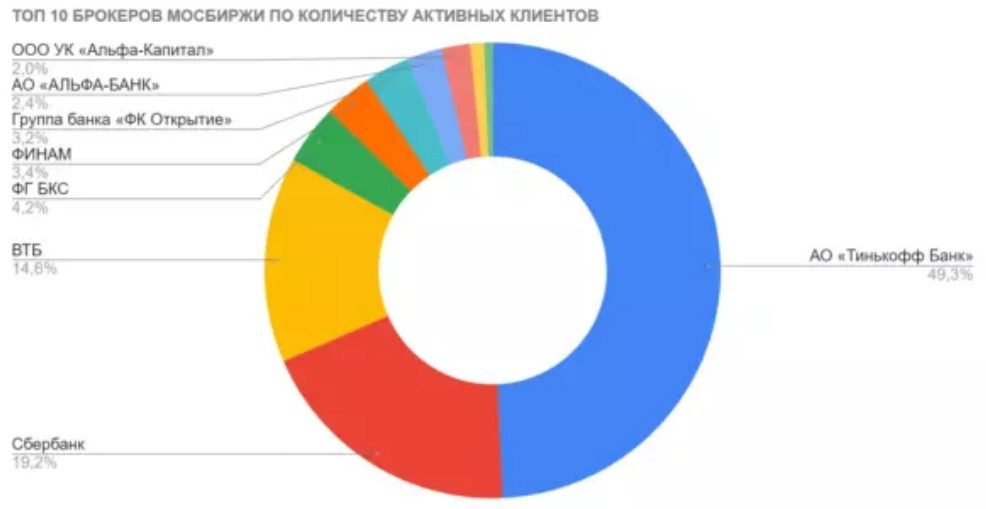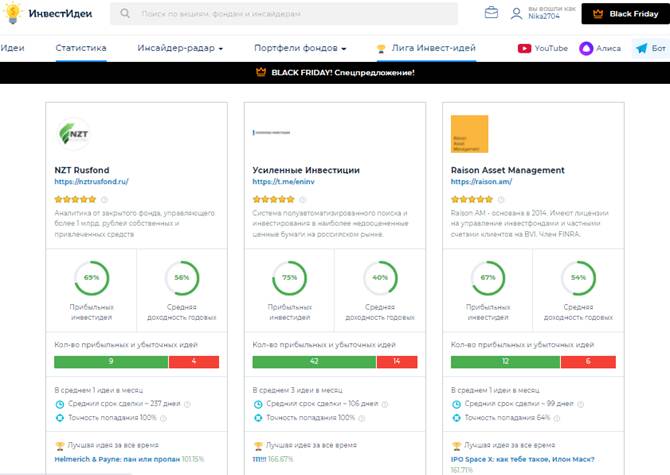Compared to 2020, the number of investors on the Moscow stock exchange has more than tripled. Many clients are newbies who are poorly versed in the stock market and working with brokers.

Who is a broker and how does he make money
A broker is a legal entity or individual who carries out financial transactions on behalf of and at the expense of a client. For the services provided, he receives a commission, the amount of which is established in the concluded agreement with the client. The broker, in accordance with the legislation of the Russian Federation, must have a license from the Central Bank. In addition to the main brokerage work permit, there may be licenses for dealer and depository activities, asset management, etc. The list of specialists accredited by the Central Bank can be found on the regulator’s website. The activity (work) of a broker is strictly regulated by law. Some beginners confuse the concepts of a broker and a trader. A trader is a private person who, using his capital, is engaged in the sale and purchase of assets. But since individuals (without a license) cannot participate in the auction,to carry out transactions on the exchange, they also need an official intermediary – preferably a profitable broker.

- stock, exchange – a specialist who purchases and sells assets on behalf of the client, on the most favorable terms;
- credit – selects a credit product on the most favorable terms;
- leasing (similar to credit ) – works mainly with legal entities;
- forex broker – work on the Forex exchange, currency transactions can only be carried out by accredited persons, that is, brokers;
- binary (similar to forex) – an intermediary between clients, in carrying out operations of binary options;
- commercial (business) – carries out the selection of tenants, buyers in the field of commercial real estate, start-up or ready-made business.
How and on what does the broker make money
The main goal of any business is to make a profit, the work of a broker is no exception. Professional market participants receive income from commissions, margin operations, and the introduction of personal assets. A financial broker, on the initiative of a client, sells or purchases securities on the exchange. This is the main obligation, but not the only one, and the broker also carries out and provides the following services:
- opening and maintaining an account;
- preparation of reports on turnover and balance of assets;
- financial advice on trade;
- stock market analyst;
- purchase, sale of shares at the request of the client;
- payment of taxes;
- submits tax returns.

The motto of any broker is commission! After all, it is from the commission that he receives his main income. And in order to earn your commissions, you need to attract as many clients as possible who are actively trading.

Brokerage commission
Commissions for a transaction are different for different brokers, in addition, a fee may be charged for maintaining an account, depository services (custody of securities). The stock exchange takes an additional commission, which is not included in the manager’s commission. If you compare with foreign countries, in particular the United States, there are fixed commissions, paid on a separate paper. In the Russian Federation, the situation is different, the client will pay a commission for each transaction made. How the

The more trades you make, the more commission the broker receives – this is important for understanding why it is beneficial for the broker to have you trade a lot.
The most popular brokers (read profitable) in Russia as of the end of 2021:
| Popular brokers | Rate | Commission per trade | Service (month) | Depository services |
| Tinkoff | “Trader” | 0.025 – 0.05% | RUB 290 | is free |
| Tinkoff | “Investor” | 0.3% | is free | is free |
| VTB | “My online” | 0.05% | is free | is free |
| VTB | “Professional Standard” | 0.015 – 0.0472% | is free | RUB 150 |
| BCS World of Investments | “Trader” | 0.01 – 0.03% | 299 r | is free |
| BCS World of Investments | “Investor” | 0.1% | is free | is free |
| Alfa Bank | “Tariff M” | 0.015 – 0.07% | RUB 290 | is free |
| Alfa Bank | “Tariff S” | 0.03% | is free | is free |
| Sberbank | “Investor” | 0.018 – 0.3% | is free | is free |

An investor who has invested in shares and is waiting for an increase in their value is not profitable and not interesting to the manager. The more the turnover on transactions, the more his earnings!
The most profitable broker commissions – truth or fiction?
In fact, profitable commissions for the client simply do not exist. In any case, the investor will pay the manager and not necessarily from the profit. The broker’s income does not consist of the client’s earned profit, but of the number of transactions performed on the account.
The broker is not a friend to the investor, it does not matter to him whether the deal was profitable. He will receive his guaranteed fee in any case!
Margin lending
Strong competition in the stock markets is holding back the growth of tariffs, which means that it is more difficult for a broker to make money. To increase the volume of transactions carried out by investors, brokers offer margin lending. Cash or securities are issued at the expense of the broker’s own investments or other clients. The security of such a loan is the investor’s assets. The amount of the margin usually exceeds the amount of the collateral. The option of automatically connecting a margin loan is present in many tariff plans. If there are not enough assets for the transaction, additional funds are automatically introduced. As a result, brokers receive their interest on the loan, entering their own capital, as well as additional interest for the transaction. If funds for investment are taken from the accounts of other clients, then they are paid a minimum rate of 0,05% per annum. The double benefit of the brokerage is clear. For example, VTB Bank provides a margin (cash) loan in rubles at a rate of 16.8% per annum (LONG – long position), in foreign currency – 4.5%. Otkritie Bank from 16%, in foreign currency from 3.7% (depending on the tariff plan and collateral). Securities margin loan (REPO) – VTB Bank (SHORT – short position) – 13% in rubles, in foreign currency – 4.5%. Usually, REPO is issued exactly for a short position.Usually, REPO is issued exactly for a short position.Usually, REPO is issued exactly for a short position.
Margin lending is another profitable, commercially profitable brokerage move. It turns out that the manager provides a margin loan, receives his own interest from it, additional interest on the transaction, and all these operations are secured by the client’s assets.

Short
Short (short or sell) is another service provided by brokers to generate additional income. If there is a tendency (expectation) for certain stocks to fall, the investor decides to sell them. The manager can give advice, borrow the shares, sell them, and when the price for them drops still, then buy them again. The difference from such a transaction will be the investor’s earnings. The broker will receive his shares as a loan repayment + interest for the transaction. If the shares rise in price, then the client will have to buy at a higher price, the security of such a transaction is his assets. Who is a broker and what does he do on the exchange: https://youtu.be/9-MfgQCTxJo
Investment products
Finished products are intermediate investments, between independent or trustworthy ones. The client can choose what assets to invest in, the level of profitability and risk, terms.
Trust management is an order for a broker to fully dispose of assets. As a rule, the term of trust is 3 years. It is clear that the receipt of income depends entirely on the manager and it is not guaranteed to the investor.
Unlike a broker, the investor will pay the guaranteed commission for asset management and for each transaction made, without receiving income, to the manager. To attract more clients, and therefore to increase the turnover of funds, brokers are developing new investment products. As you can see, the% of investment ideas is much higher than the% of their profitability:

How to minimize losses when trading through a broker – is it possible
Before investing assets to work on the stock exchange, you need to study the financial market. To work in the stock market, first of all, you need not the most profitable, but a reliable broker for investments. For the correct interaction with the manager, you need to decide:
- what assets to invest in (bonds, stocks, etc.), currency;
- the desired profitability of the product;
- investment terms (unlimited, fixed).
Study the documents carefully:
- before signing the contract, be sure to read the risk declaration;
- study the agreement, find out how and when, the conditions can actually be withdrawn in whole or in part (investments are not insured!).
If all the conditions of the investor are satisfied, an agreement is signed and funds are deposited into the account. The signing of the contract can take place remotely. You need to periodically check the report, the state of the account, take into account how much brokers earn on the exchange on your financial transactions. If the client considers that the manager’s strategy is not justified, the option of switching to a more favorable tariff should be discussed.
Conclusion: brokers are interested in investors trading more and more often. Their earnings depend entirely on the number of deals made.
 On the Russian market, the most sought-after brokerage companies take a fraction of a percentage of seldom-conducted transactions. But if the client is actively trading, and transactions are concluded for large amounts, then the commission can be significant. The development of new products increases the client base, and therefore the turnover of funds. Even the most profitable broker in Russia works to obtain, first of all, its own benefit, and already secondarily for the benefit of the investor. Although it is precisely because of the number of clients and the transactions carried out by him that his total income is formed. The main task of a broker is to find a “golden mean”, attract more actively trading clients, provide them, if possible, with a stable income and receive their legal fee.
On the Russian market, the most sought-after brokerage companies take a fraction of a percentage of seldom-conducted transactions. But if the client is actively trading, and transactions are concluded for large amounts, then the commission can be significant. The development of new products increases the client base, and therefore the turnover of funds. Even the most profitable broker in Russia works to obtain, first of all, its own benefit, and already secondarily for the benefit of the investor. Although it is precisely because of the number of clients and the transactions carried out by him that his total income is formed. The main task of a broker is to find a “golden mean”, attract more actively trading clients, provide them, if possible, with a stable income and receive their legal fee.




